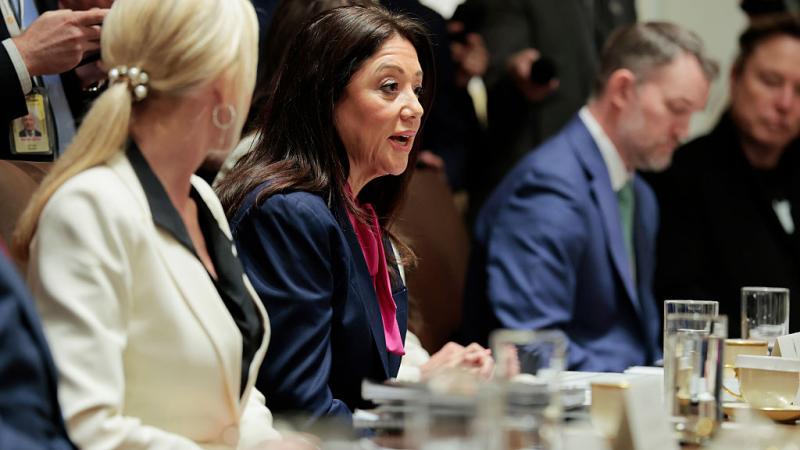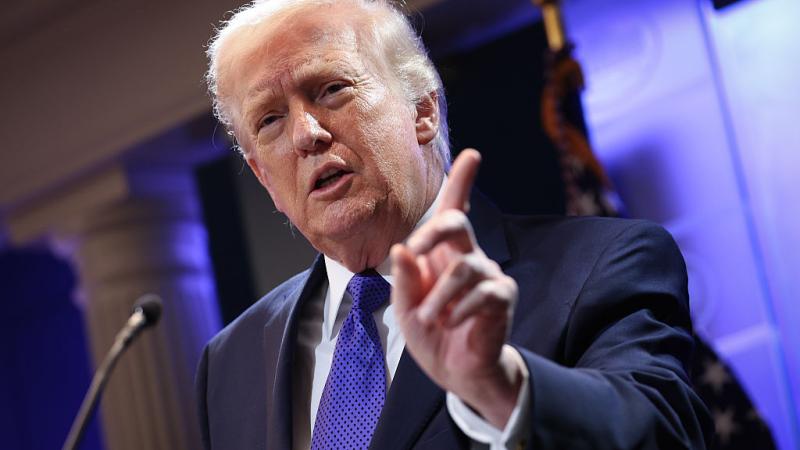Feds swing between pushing boosters, fueling vax hesitancy with Pfizer stroke inquiry
CDC surveillance system finds possible "safety concern for ischemic stroke" in elderly people who got Pfizer's bivalent booster. Mainstream media turn on government narratives on bivalent effectiveness, official COVID statistics.
Less than two days after FDA Commissioner Robert Califf credited bivalent COVID-19 boosters with "significant" and "clinically meaningful" reductions in hospitalization and death "in all populations examined," his own agency gave a new boost to vaccine hesitancy.
The CDC and FDA announced an "additional investigation" Friday afternoon into a possible "safety concern for ischemic stroke" in recipients of Pfizer's bivalent who are 65 and older, even while stating twice in bold that "no change" was recommended "in vaccination practice."
They said the CDC's Vaccine Safety Datalink provoked their "rapid-response investigation," which "raised a question" about whether stroke was more likely within 21 days of boosting versus 22-44 days.
The decision recalls the agencies' recommended "pause" in Johnson & Johnson's traditional COVID vaccine in April 2021 following six dangerous blood clots in women.
While the VSD signal is "very unlikely" to represent a "true clinical risk," the agencies said they notified the public in the interest of transparency.
Their prior failure to share bivalent data is partially responsible for an unexpected wave of skeptical media coverage this month, which has questioned the effectiveness of boosters that now-outdated Omicron subvariants as well as the reliability of official statistics on COVID.
Several outside vaccine advisers, including the editor-in-chief of the New England Journal of Medicine, told CNN Wednesday the agencies hid unfavorable results from them when they were considering whether to recommend Moderna's bivalent booster for approval.
The U.S. is drastically overcounting COVID deaths and hospitalizations by conflating incidental infections with those that played a meaningful role, former Baltimore public health commissioner Leana Wen wrote in The Washington Post Friday.
Tufts Medical Center epidemiologist Shira Doron told Wen that hospitalizations due to COVID "were as low as 10 percent of the total number reported" on some days, while attending physician Robin Dretler at Emory Decatur Hospital estimated 90% of those hospitalized with COVID are there "for some other illness."
The coverage gives new visibility to long-running scrutiny from some scientists, media and lawmakers. While the FDA's authorization of bivalents based on eight mice raised eyebrows last summer — before independent human studies found no improvement from bivalents — the concern about official statistics goes back more than two years.
White House COVID adviser Anthony Fauci admitted PCR tests can pick up dead virus in July 2020. The next month, The New York Times exposed widespread overcounts of positives based on dead or insignificant viral loads. CDC Director Rochelle Walensky admitted in December 2021 that PCR tests can show positives for three months after infections clear.
Several states told Just the News in January 2021 they were counting any hospitalization with a positive test as COVID-related.
Oregon lawmakers are seeking a federal grand jury to investigate pandemic measurement decisions. The CDC's COVID death figures are "inaccurate" because they conflate primary, contributing and incidental causes, Great Barrington Declaration coauthors Martin Kulldorff and Jay Bhattacharya said in regulatory comments last spring.
The early Moderna data, withheld from the FDA's Vaccines and Related Biological Products Advisory Committee and CDC's Advisory Committee on Immunization Practices, showed infections were higher in the Wuhan-Omicron group than those who received the original Wuhan-only boosters.
VRBPAC member Paul Offit, one of two "no" votes, told CNN he was "angry" with the FDA and Moderna for withholding data "relevant to our decision." His colleague Eric Rubin, the NEJM editor-in-chief and "yes" voter, accused the agency of treating them like "children."
The FDA said it didn't have enough time to "substantively review" the data, which arrived the day before the VRBPAC meeting, before sharing it.
Any data "looked at as part of the study" should be given to advisers as well, ACIP member Pablo Sanchez said. The CDC's justification — that the study was "not designed to assess vaccine effectiveness" and too small to share —- is "very weak," non-voting ACIP member William Schaffner said.
Offit, director of the Vaccine Education Center at Children's Hospital of Philadelphia and vocal critic of booster policy, went on the offensive in an NEJM "perspective" Wednesday that called bivalents a "cautionary tale" based on the independent human studies.
The new boosters are probably underperforming due to "imprinting," in which the immune systems of previously vaccinated people are "primed to respond" to the Wuhan strain and therefore probably responded to "epitopes shared by BA.4 and BA.5" Omicron sublineages and Wuhan, Offit wrote.
He predicted the "moderate increase in protection" against symptomatic infection from bivalents, as found by a CDC study in November, "will be short-lived" against what is now "probably generally mild disease" as more immune-evasive strains become dominant.
Until variants evolve to resist protection against severe outcomes from primary-series vaccination or natural immunity, there's not a clear case for developing vaccines to target "strains that might disappear a few months later" or to boost "healthy, young people," he said.
Offit's offensive drew coverage in both MedPage Today and Time, which elaborated at length on immune imprinting and the changing purpose of the original and the bivalent boosters, which target strains that "do not seem to cause serious disease in most healthy people."
Scripps Research Translational Institute Director Eric Topol pushed back on Offit in an essay the same day reviewing bivalent booster research and concluding the new booster "outperforms" against the original. Offit "constantly negates much of the data" in favor of boosters going back to summer 2021, when their "need" was "firmly established," Topol wrote.
FDA Commissioner Califf pointed to Topol's essay in his Wednesday night tweet thread, which warns young people they "may not be aware of clinical comorbidities that put them at increased risk of these serious outcomes" without boosting.
Califf's thread quickly drew pushback from doctors, including Johns Hopkins medical professor Marty Makary, a National Academies of Medicine member, who said the CDC's own data didn't back Califf's one-size-fits-all recommendation.
University of California San Francisco epidemiologist Vinay Prasad called Califf "a source of misinformation by highlighting worthless observational data" that also shows vaccinated people "have fewer car accidents."
Prasad noted that the FDA's vaccines chief, Peter Marks, admitted last month in the Journal of the American Medical Association that the agency can't keep relying on "immunobridging to infer vaccine effectiveness" between different populations, but must be given results from "large randomized clinical trials."
The Facts Inside Our Reporter's Notebook
Videos
Links
- FDA Commissioner Robert Califf credited bivalent COVID-19 boosters
- CDC and FDA announced an "additional investigation"
- "pause" in Johnson & Johnson's traditional COVID vaccine
- told CNN Wednesday the agencies hid unfavorable results
- The Washington Post
- FDA's authorization of bivalents based on eight mice
- found no improvement from bivalents
- PCR tests can pick up dead virus
- The New York Times exposed widespread overcounts
- Rochelle Walensky admitted in December 2021
- counting any hospitalization with a positive test as COVID-related
- federal grand jury to investigate pandemic measurement decisions
- CDC's COVID death figures are "inaccurate
- vocal critic of booster policy
- NEJM "perspective" Wednesday
- MedPage Today
- Time
- Eric Topol pushed back on Offit
- Califf's thread quickly drew pushback from doctors
- vaccinated people "have fewer car accidents."
- Journal of the American Medical Association















